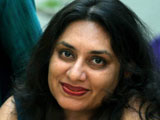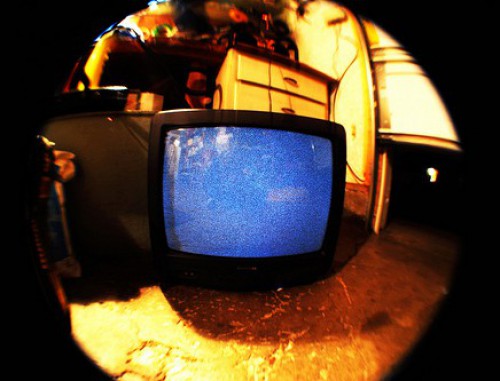A Distorted Picture
by Bina Shah / November 27, 2012 / No comments
Searching for truth in media hyperbole.
It’s always a little tough for me to return home to Pakistan—a country that is dysfunctional in almost every way—after spending some time in a more developed country. In light of this it’s nice to be reminded that there are things about Pakistan that work, even if unconventionally, as described in an article from the Financial Times called “Time to Look Again at Pakistani Society.” The article looks at the push for education in my country and indirectly mentions the project I’m involved in, Education For Sindh, which distributes vouchers for low-cost private schools to thousands of out-of-school kids in Karachi and rural Sindh.

- Pakistan is a country of contradictions – full of promise for growth, modernity and progress, yet shrouded by political, social and cultural issues that undermine its quest for identity and integrity. My bi-monthly column “Pakistan Unveiled” presents stories that showcase the Pakistani struggle for freedom of expression, an end to censorship, and a more open and balanced society.

- Bina Shah is a Karachi-based journalist and fiction writer and has taught writing at the university level. She is the author of four novels and two collections of short stories. She is a columnist for two major English-language newspapers in Pakistan, The Dawn and The Express Tribune, and she has contributed to international newspapers including The Independent, The Guardian, and The International Herald Tribune. She is an alumnus of the International Writers Workshop (IWP 2011).
It’s difficult, however, to deal with other interpretations of Pakistan in mainstream media. For example, I wonder if Pakistan can truly be described as “deeply conservative”–or at least whether that appellation applies to all of the country’s doings. It’s appropriate when it comes to looking at how women are treated—conservatism and patriarchy go hand-in-hand. But I’d say that in most other aspects of life, Pakistan is not “deeply” conservative, but “hypocritically” conservative. People like to put on a conservative face and then do whatever is convenient, desirable, or enjoyable, conservative or not. We’re very good at pretending to be pious Muslims, but we’re not. We talk a lot about being respectful and honor-bound, holding to our traditions and culture, but inside we have deep insecurities and complexes about our identity.
Then again, both local and foreign media often describe the situation in Pakistan in ways that are so full of hyperbole that it becomes hard to tell what’s true and what’s false. Here’s an example from an article about Pakistani lawyers in the Washington Post:
“In a country where militants rule large swaths of territory, corruption is endemic and people are ‘disappeared’ by security agencies…”
The Washington Post is correct when they note that corruption is endemic and that security agencies kidnap people, especially in Balochistan. But militants do not “rule large swaths of territory.” It’s easy to slip untruths amongst correct facts and what you end up with is a picture that becomes gradually distorted, like a badly tuned television.
The mainstream media’s reporting on the Israeli strikes on Gaza is yet another example of biased, one-sided reporting. Mainstream media is making it out as if Gaza instigated the violence when the truth is that Israel had provoked the Gazans all through the month of October. They killed a mentally disabled man, shot a young boy while he was playing soccer, and finally assassinated a Hamas leader who they had entrusted with the impossible task of maintaining the truce. All the while, Israel has continued its inhuman blockade of the Occupied Territories without remorse. They continue to build illegal settlements, force Palestinians to live under apartheid conditions, and destroy the land and crops of Palestinian farmers.
For an excellent analysis of how Israel shattered the truce in Gaza, I recommend the site Electronic Intifada, which presents the “other” side of the story that you won’t see in mainstream media. Even the BBC, whose Arab employee lost his infant son in a Gaza rocket strike, won’t tell you what you’ll find here.
Am I being too picky in my demands for accuracy? Possibly. But I want the truth, not lazy or dishonest journalism, nor a distorted picture. Is that too much to ask?
Sections from this article were previously published by the author on her blog and The Express Tribune.





